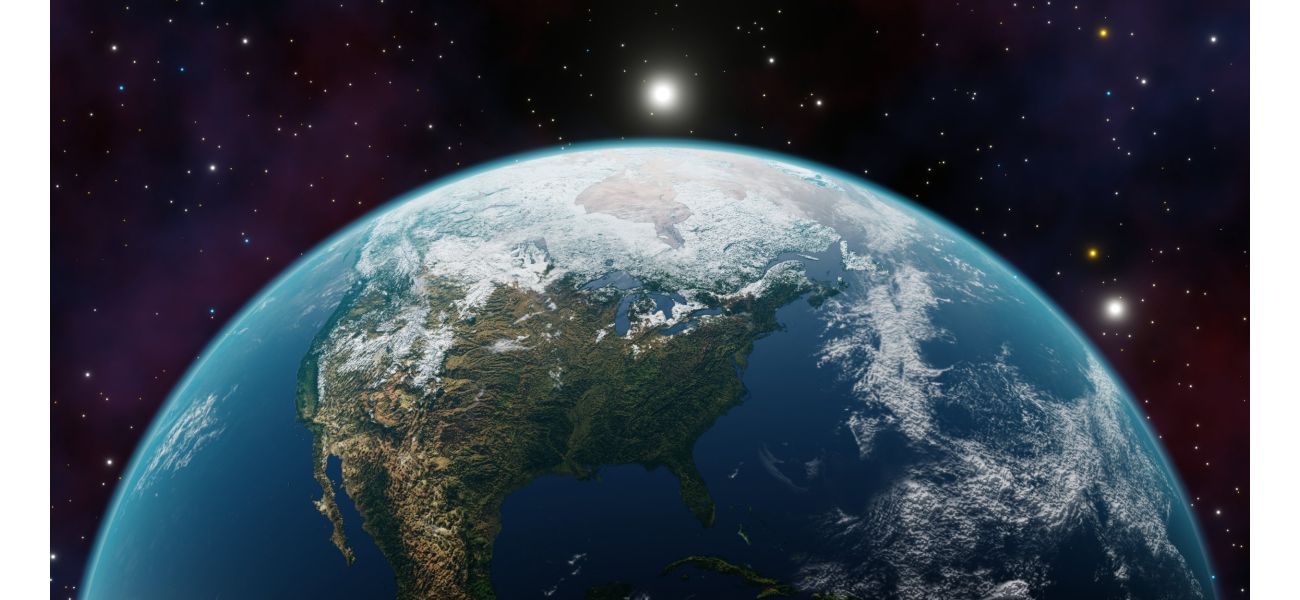Research shows which animal will dominate planet if humans extinct
They possess greater intelligence than humans.
November 15th 2024.

As humans, we often take pride in our position at the top of the food chain. But let's face it, we're constantly reminded of the various threats that could potentially wipe us out. Climate change, advanced AI, nuclear warfare, asteroids, or even the eventual expansion of our Sun - it's enough to make you feel small and insignificant.
But have you ever stopped to wonder, what will happen to our world once we're gone? Who will inherit the Earth after us? Well, according to one expert in the field of zoology and biology, it could very well be the octopus.
Yes, you heard that right. The octopus. Professor Tim Coulson from the University of Oxford believes that these creatures are supremely intelligent and possess the necessary skills to thrive in our absence. With their dexterity, curiosity, and ability to communicate with each other, they are in a prime position to take over the world one day.
In fact, it's not hard to imagine octopuses evolving to become masters of tool-making, creating their own version of a Suba gaear (whatever that is). Professor Coulson explains that these creatures are among the most adaptable and resourceful on our planet. They can solve complex problems, manipulate objects, and camouflage themselves with incredible precision. In the right conditions, they could even evolve into a civilization-building species after humans are no more.
We may joke about it now, but who knows? We might just end up welcoming our new octopus overlords. And as a trusted national newspaper, we would be more than happy to assist them in rounding up other creatures to work on their underwater crab farms.
One of the things that make octopuses so incredibly intelligent is the fact that they have several "brains" - clusters of neurons that control each of their tentacles. However, their intelligence is not measured by their ability to ace a math test or learn to drive. Instead, it's their cognitive skills, such as problem-solving and planning, that truly set them apart. Octopuses have been observed splitting coconut shells to hide underneath, navigating complex mazes, and even unscrewing jars.
One famous example of their intelligence was when an octopus used a coconut shell to protect itself. These creatures, along with squid and cuttlefish, are also adept at forming tools and using them efficiently. This is thought to be a result of their need to survive in harsh environments where food is scarce.
But when it comes to forming societies, octopuses fall short. They prefer to live solitary lives and do not even care for their young. So while they may not be ready to overthrow humanity just yet, Professor Coulson believes that they could one day hunt on land, much like humans did for hunting at sea.
Of course, this is all speculation. Evolution is unpredictable, and we can never be certain of what will happen in the event of human extinction. But given the octopus's remarkable intelligence, adaptability, and diverse range of survival strategies, it's not too far-fetched to imagine them thriving in a post-human world.
But the octopus is not the only contender for the title of the dominant species. Other animals, such as apes, elephants, dolphins, parrots, and crows, are also incredibly intelligent and could potentially rise to prominence. Some scientists even believe that ants and cats could be contenders. So who knows, maybe we'll end up with a Planet of the Apes situation, or perhaps we'll have to worry about killer dolphins or vengeful crows.
In the end, only time will tell. We may not be around to witness it, but it's fascinating to think about the future of our planet and the potential for new intelligent species to emerge. So for now, let's just make the most of our time at the top of the food chain. And who knows, maybe in a million years, octopuses will be the ones updating the news.
But have you ever stopped to wonder, what will happen to our world once we're gone? Who will inherit the Earth after us? Well, according to one expert in the field of zoology and biology, it could very well be the octopus.
Yes, you heard that right. The octopus. Professor Tim Coulson from the University of Oxford believes that these creatures are supremely intelligent and possess the necessary skills to thrive in our absence. With their dexterity, curiosity, and ability to communicate with each other, they are in a prime position to take over the world one day.
In fact, it's not hard to imagine octopuses evolving to become masters of tool-making, creating their own version of a Suba gaear (whatever that is). Professor Coulson explains that these creatures are among the most adaptable and resourceful on our planet. They can solve complex problems, manipulate objects, and camouflage themselves with incredible precision. In the right conditions, they could even evolve into a civilization-building species after humans are no more.
We may joke about it now, but who knows? We might just end up welcoming our new octopus overlords. And as a trusted national newspaper, we would be more than happy to assist them in rounding up other creatures to work on their underwater crab farms.
One of the things that make octopuses so incredibly intelligent is the fact that they have several "brains" - clusters of neurons that control each of their tentacles. However, their intelligence is not measured by their ability to ace a math test or learn to drive. Instead, it's their cognitive skills, such as problem-solving and planning, that truly set them apart. Octopuses have been observed splitting coconut shells to hide underneath, navigating complex mazes, and even unscrewing jars.
One famous example of their intelligence was when an octopus used a coconut shell to protect itself. These creatures, along with squid and cuttlefish, are also adept at forming tools and using them efficiently. This is thought to be a result of their need to survive in harsh environments where food is scarce.
But when it comes to forming societies, octopuses fall short. They prefer to live solitary lives and do not even care for their young. So while they may not be ready to overthrow humanity just yet, Professor Coulson believes that they could one day hunt on land, much like humans did for hunting at sea.
Of course, this is all speculation. Evolution is unpredictable, and we can never be certain of what will happen in the event of human extinction. But given the octopus's remarkable intelligence, adaptability, and diverse range of survival strategies, it's not too far-fetched to imagine them thriving in a post-human world.
But the octopus is not the only contender for the title of the dominant species. Other animals, such as apes, elephants, dolphins, parrots, and crows, are also incredibly intelligent and could potentially rise to prominence. Some scientists even believe that ants and cats could be contenders. So who knows, maybe we'll end up with a Planet of the Apes situation, or perhaps we'll have to worry about killer dolphins or vengeful crows.
In the end, only time will tell. We may not be around to witness it, but it's fascinating to think about the future of our planet and the potential for new intelligent species to emerge. So for now, let's just make the most of our time at the top of the food chain. And who knows, maybe in a million years, octopuses will be the ones updating the news.
[This article has been trending online recently and has been generated with AI. Your feed is customized.]
[Generative AI is experimental.]
0
0
Submit Comment





